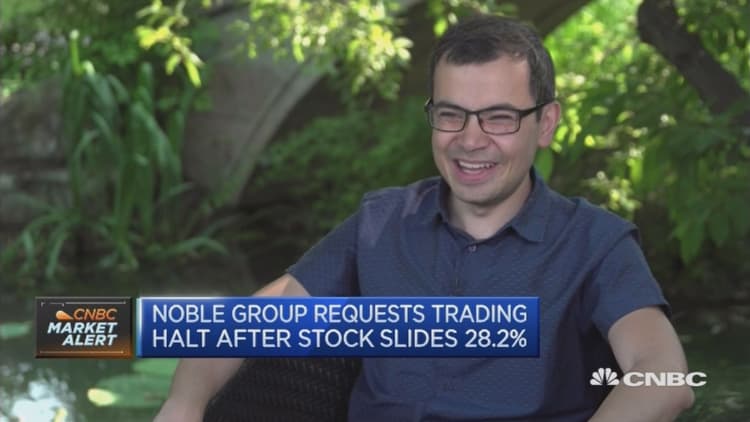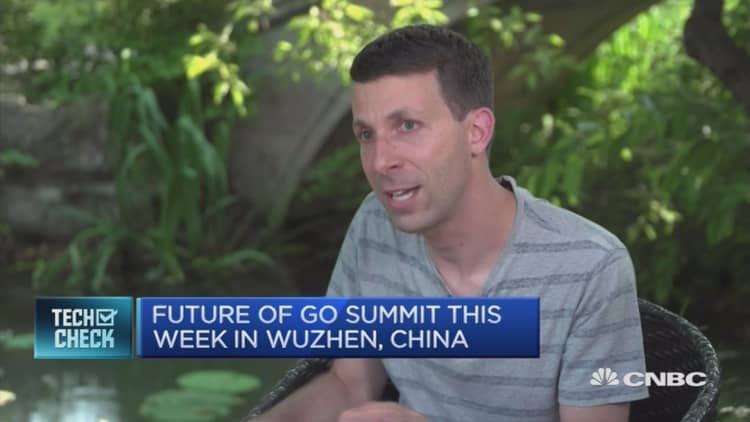
WUZHEN, CHINA -- With computers stronger than ever and robots popping up on factory assembly lines, it's no surprise that people are wondering if machines will someday replace humans. But it's nothing to be afraid of, Google executives say.
That's because innovations will make the world better and more efficient, freeing people up to pursue more creative, interesting things.
"Some jobs are displaced, but equally new jobs are also created each time a new technology comes along," Dave Silver, a lead programmer of a powerful Google computer, AlphaGo, told CNBC. "There will be big change … but it's something I'm optimistic will actually lead to more opportunities, rather than less."
Google has made a big push with artificial intelligence, with its machine, AlphaGo, as the most visible success thus far. The computer has already beat twice this week Ke Jie, a 19 year old and the world's best player of Go, an ancient Chinese board game.
Teaching computers to master the game has long been considered a holy grail for scientists given the complexity – there are more possible configurations of the board than atoms in the universe.
And AlphaGo's ability to beat the best human masters is something that happened about a decade sooner than experts anticipated.

Given these rapid advancements, the tech firm is now looking to apply AI to a range of fields. Image recognition, for instance, can be used for diagnosing medical conditions, said Lily Peng, a trained doctor leading the tech firm's efforts in finding health applications.
Such technology can help physicians cut down the "time crunching through data," Peng told CNBC. Then doctors can spend far more time "taking care of the patients … [and] understanding what they want to tailor the best treatment for them."
When it comes to finance, HSBC has even taken on Google services to fight money laundering and better calculate risk, said Jia Li, head of R&D for machine learning and artificial intelligence at Google.
The bank can now generate certain financial reports in six minutes – much faster than the six hours it previously took.
"We're most excited about applying AI to science and medicine … using AI as a tool to improve scientific breakthroughs," Demis Hassabis, CEO of Google DeepMind, which developed AlphaGo, told CNBC. "And also to improve healthcare and maybe eventually help with finding cures for diseases or medical diagnostics."
Other firms, like Beijing-based tech firm Baidu, are also using artificial intelligence for various applications.
Baidu, for example, has used facial recognition to identify and locate missing people by matching images uploaded to an online platform, in cooperation with government authorities. So far, the company has been able to successfully locate two missing persons.


